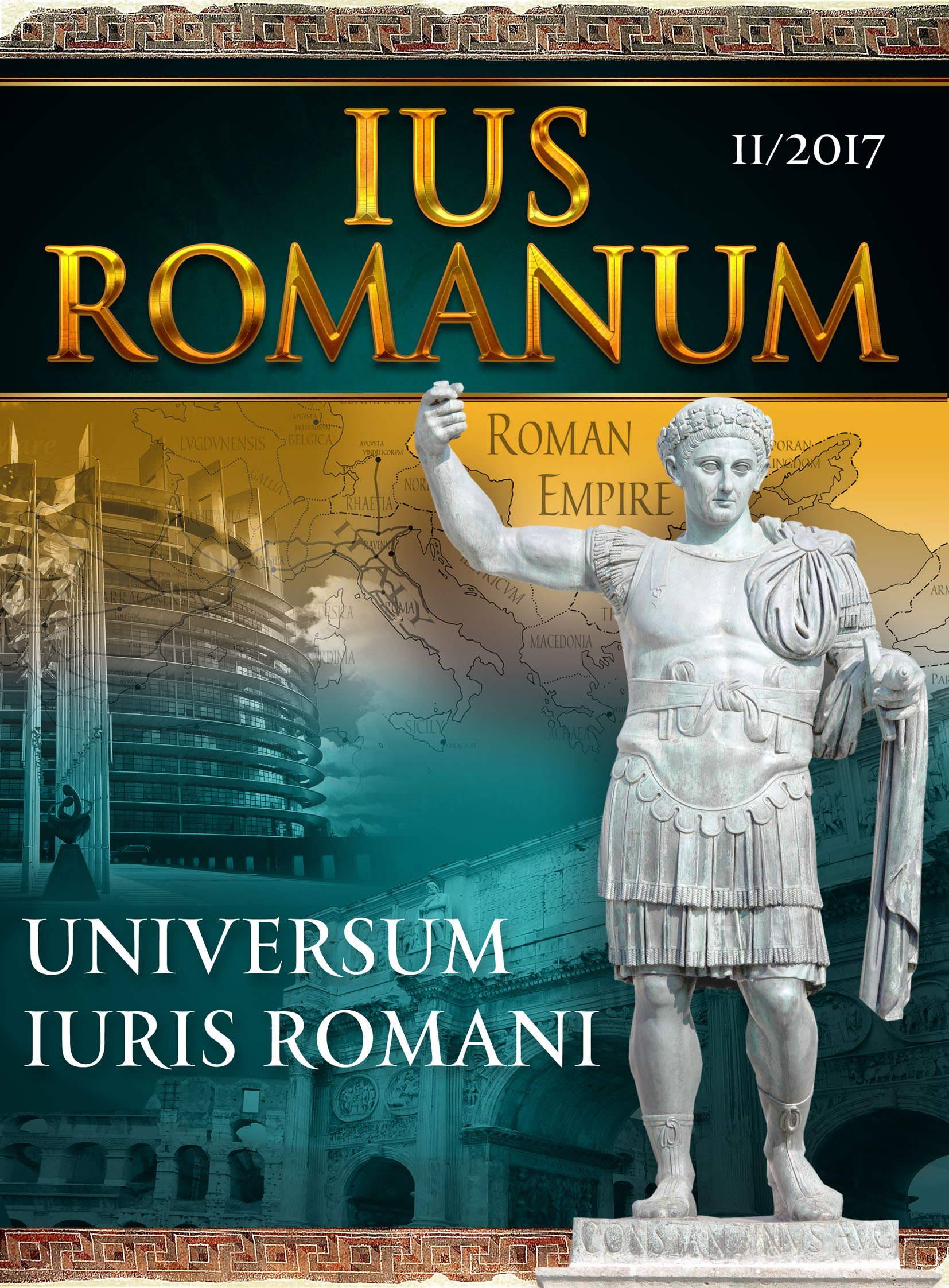REGARD SUR LES CAUSES DE L’EXIL DU POÈTE OVIDE DANS LA PERSPECTIVE DU DROIT PÉNAL ROMAIN
ANALYSIS FROM THE PERSPECTIVE OF ROMAN PENAL LAW UPON THE CAUSES OF THE EXILE OF POET PUBLIUS OVIDIUS NASO
Author(s): Teodor SambrianSubject(s): Law, Constitution, Jurisprudence, History of Law, Criminal Law
Published by: Софийски университет »Св. Климент Охридски«
Keywords: Lex Iulia de adulteriis coërcendis; Lex Iulia maiestatis; adulterium; lenocinium; stuprum; relegatio in insulam;
Summary/Abstract: The article comes as a result of the commemoration of the 2000 years since the death of Publius Ovidius Naso. Philologists and historians have given their opinion about the causes of the poet's conviction since the 4th century on the Epitome de Caesaribus. Many have attempted to unravel the hidden meanings of Ovid's autobiographical works Tristia and Epistulae ex Ponto and have expressed several opinions on the matter: either the poet was involved in a sexual scandal; he was part of a conspiracy in favor of a contender of the future emperor Tiberius or he had committed a sacrilege by assisting at a religious ritual at which he was not allowed to participate. In this article we propose a juridical approach to the "Ovid case". From this perspective after examining the Crimnal law rules existing in 8 BC Rome, the Criminal procedure`s norms of quaestiones and cognitio extra ordinem and the substantive norms comprised in Lex Iulia de adulteriis coërcendis and Lex Iulia maiestatis, we have reached the conclusion that the poet Ovid was judged by Augustus in extra ordinem procedure and condemned to relegatio in insulam (he was exiled to Tomis) for a crimen maiestatis. Usually a conviction for a crimen maiestatis carried a capital punishment, the most lenient of which was being deportatio in insulam which implied the revocation of citizen rights and wealth confiscation. This is what would have happened if the poet had been tried in the quaestiones system. In this extraordinary procedure, however, the punishment was at the discretion of the judge, meaning that the emperor or a person authorized by the emperor could grant mitigating or aggravating circumstances, according to the social condition of the condemned person. Ovid, a member of the equestrian order, was a honestior and benefited from the least severe punishment.
Journal: IUS ROMANUM
- Issue Year: 2017
- Issue No: 2
- Page Range: 197-219
- Page Count: 23
- Language: French

